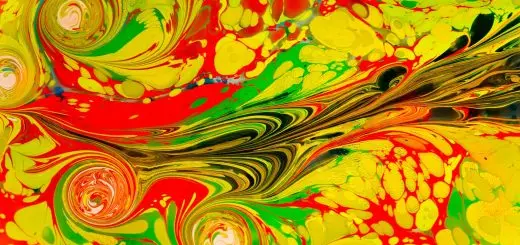Why Do Dogs Eat Poop?

Looking for more amazing products? Check out our online store and explore our collection here! Happy shopping!
Before diving in, please note: This post is for informational purposes only. If you’d like to know more about how we approach topics, feel free to check out our friendly Disclaimer Page.
Hey there, amazing readers! 
We’re committed to delivering quality posts, and your support (even just sticking around despite the ads) means everything to us. So, bear with us, and thanks for helping us keep the good vibes rolling. Now, on to the fun stuff!
TRANSLATE BUTTON AT THE END OF THE ARTICLE
If you’re a dog owner, you’ve probably seen some quirky behavior from your furry friend.
But one habit that can leave you scratching your head—and perhaps feeling a little grossed out—is poop eating, also known as coprophagia (pronounced kah-prah-fay-juh).
While this behavior might seem shocking to us, it’s actually more common than you think, and there are a variety of reasons why dogs do it.
From health issues to natural instincts, let’s dive deep into the mystery of why dogs eat poop and what we can do about it.
Is It Normal for Dogs to Eat Poop?
Before we jump to conclusions, it’s important to note that poop eating is a behavior seen in many dogs at some point in their lives.
Puppies, in particular, are notorious for exploring the world with their mouths, and this often includes nibbling on feces.
While it’s not exactly appetizing from a human perspective, poop eating is not always a sign that something is wrong.
However, it can also indicate certain underlying health or behavioral issues that warrant attention.
Why Do Dogs Eat Poop?
1. It’s a Natural Instinct
Mother Dogs: When a mother dog has puppies, she will often lick them clean and eat their waste to keep the den area sanitary and odor-free.
This behavior is instinctual and rooted in the survival of her litter.
Pack Behavior: In the wild, dogs are scavengers and may eat feces to prevent predators from picking up their scent.
This behavior may persist in domesticated dogs even though they no longer need to worry about predators.
2. Nutritional Deficiencies
Dogs might turn to poop as a way to supplement their diet if they’re missing key nutrients.
Possible causes include:
Poor Diet: A lack of proper nutrition in their food, especially in low-quality kibble, can leave your dog searching for extra nutrients.
Malabsorption: Even if your dog eats a balanced diet, certain health conditions like pancreatic insufficiency can prevent their body from absorbing nutrients properly, leading to poop eating as an attempt to compensate.
3. Hunger
Dogs that are not getting enough calories—or that have increased appetites due to medical conditions—may resort to eating poop.
Conditions that can cause increased hunger include:
Diabetes
Cushing’s disease
Thyroid issues
Parasites, such as worms
4. Behavioral Issues
Sometimes, poop eating is less about health and more about behavior.
These include:
Boredom: Dogs left alone for long periods or lacking mental stimulation might eat poop simply because they’re bored.
Stress or Anxiety: Dogs with separation anxiety or other stress-related issues might turn to coprophagia as a coping mechanism.
Attention-Seeking: If a dog notices that poop eating gets a big reaction from their owner (even if it’s negative), they may continue the behavior for attention.
5. Curiosity and Exploration
Let’s face it: dogs explore the world with their noses and mouths.
For young puppies especially, eating poop can simply be a case of curiosity.
Discover "Dog Care: Learning How to Care for Your Furry Friend
"
They might not yet understand that poop isn’t food, and their natural urge to investigate everything leads them to take a taste.
6. Imitation
Puppies may mimic the behavior of their mother or other dogs.
If they see another dog eating poop, they might think it’s normal and follow suit.
7. Health Conditions
Sometimes, poop eating can point to an underlying health issue, such as:
Intestinal parasites
Malabsorption syndromes
Enzyme deficiencies
Hyperthyroidism
If your dog suddenly starts eating poop out of the blue, it’s a good idea to check with your veterinarian to rule out these conditions.
Is It Dangerous for Dogs to Eat Poop?
While eating their own poop is generally not harmful, eating the feces of other animals can expose your dog to parasites, bacteria, and diseases such as:
Intestinal worms
Giardia
Parvovirus (from infected dogs)
Toxoplasmosis (from cat feces)
Even if the poop comes from a healthy source, it’s best to discourage this behavior to avoid unnecessary risks.
How to Stop Your Dog From Eating Poop
If your dog’s poop-eating habit has you at your wits’ end, there are several steps you can take to curb the behavior.
Here’s how you can help:
1. Rule Out Medical Issues
Start by visiting your veterinarian to ensure there are no underlying health problems causing the behavior.
Your vet may recommend dietary changes, supplements, or further testing if needed.
2. Provide a Balanced Diet
Feed your dog high-quality, nutrient-rich food that meets their dietary needs.
If your vet identifies a nutritional deficiency, they may recommend adding specific supplements, like digestive enzymes or probiotics, to your dog’s diet.
3. Clean Up Immediately
One of the easiest ways to prevent poop eating is to remove the temptation.
Pick up feces in your yard or on walks as soon as possible so your dog doesn’t have the chance to snack.
4. Train and Redirect
Training is key to breaking the habit.
Use commands like “leave it” or “drop it” to redirect your dog’s attention away from poop.
Reward them with treats or praise when they obey.
5. Provide Mental Stimulation
Boredom is a common cause of poop eating, so keeping your dog entertained can help.
Try activities like:
Puzzle toys
Interactive games
Regular walks and playtime
6. Use Deterrents
Some products are designed to make poop taste less appealing to dogs.
These are typically added to your dog’s food and work by changing the flavor of their feces.
Always consult your vet before using such products.
When to Seek Professional Help
If you’ve tried everything and your dog is still eating poop, it may be time to consult a professional dog trainer or behaviorist.
They can help identify the root cause and create a customized training plan for your dog.
Conclusion
While poop eating might be a frustrating or embarrassing habit, it’s not uncommon for dogs.
Understanding why your dog engages in this behavior is the first step toward addressing it.
Whether it’s due to instinct, diet, boredom, or a medical issue, there are plenty of strategies to help your furry friend break the habit.
Remember, patience and consistency are key—and your dog’s health and happiness are worth it!

The Enlightenment Journey is a remarkable collection of writings authored by a distinguished group of experts in the fields of spirituality, new age, and esoteric knowledge.
This anthology features a diverse assembly of well-experienced authors who bring their profound insights and credible perspectives to the forefront.
Each contributor possesses a wealth of knowledge and wisdom, making them authorities in their respective domains.
Together, they offer readers a transformative journey into the realms of spiritual growth, self-discovery, and esoteric enlightenment.
The Enlightenment Journey is a testament to the collective expertise of these luminaries, providing readers with a rich tapestry of ideas and information to illuminate their spiritual path.
Our Diverse Expertise
While our primary focus is on spirituality and esotericism, we are equally passionate about exploring a wide range of other topics and niches 

To ensure we provide the most accurate and valuable insights, we collaborate with trusted experts in their respective domains 
Our blog originally focused on spirituality and metaphysics, but we’ve since expanded to cover a wide range of niches. Don’t worry—we continue to publish a lot of articles on spirituality! Frequently visit our blog to explore our diverse content and stay tuned for more insightful reads.
Hey there, amazing reader! 
Check out our store here and take a peek at some of our featured products below! Thanks for being awesome!











